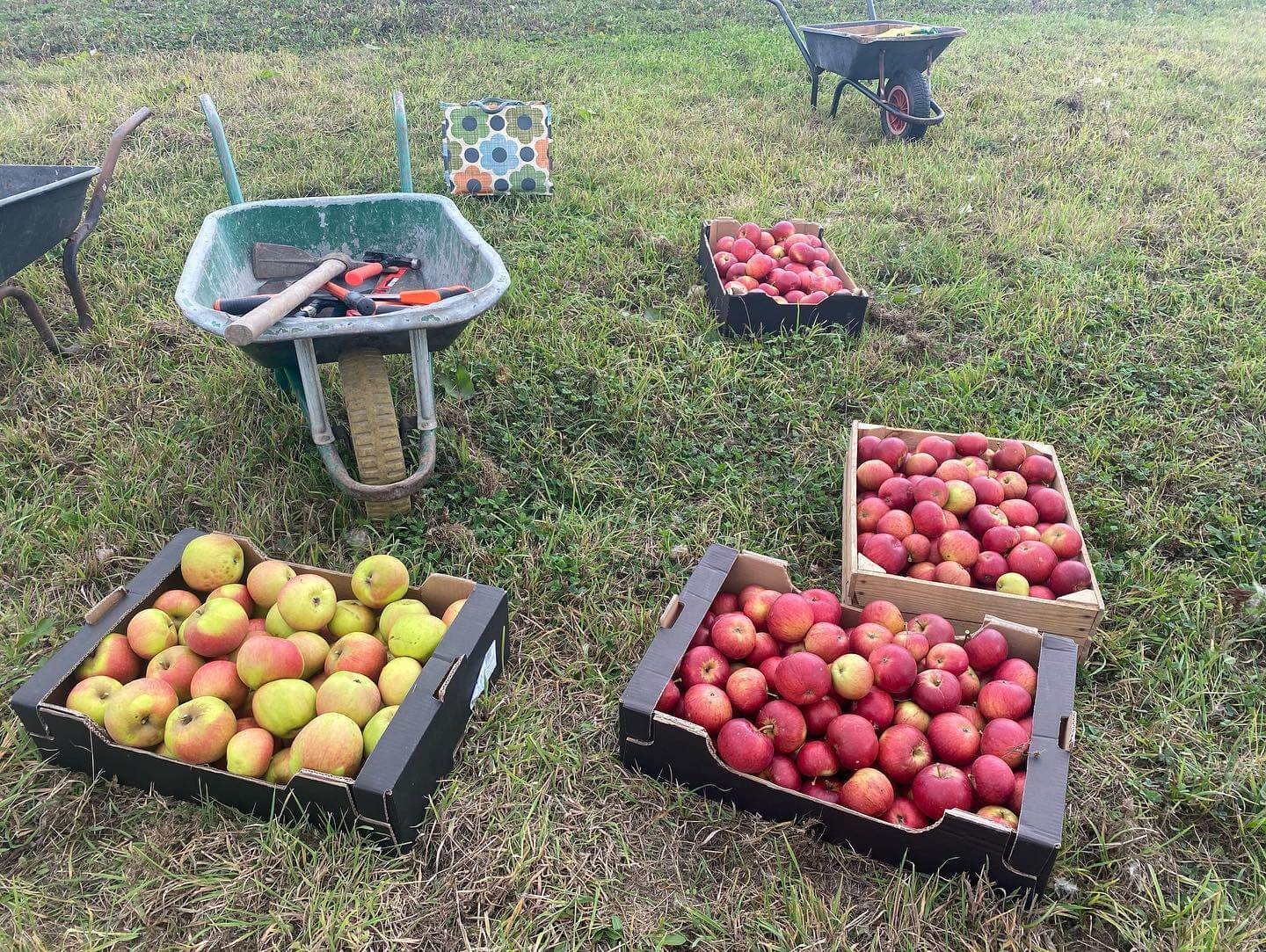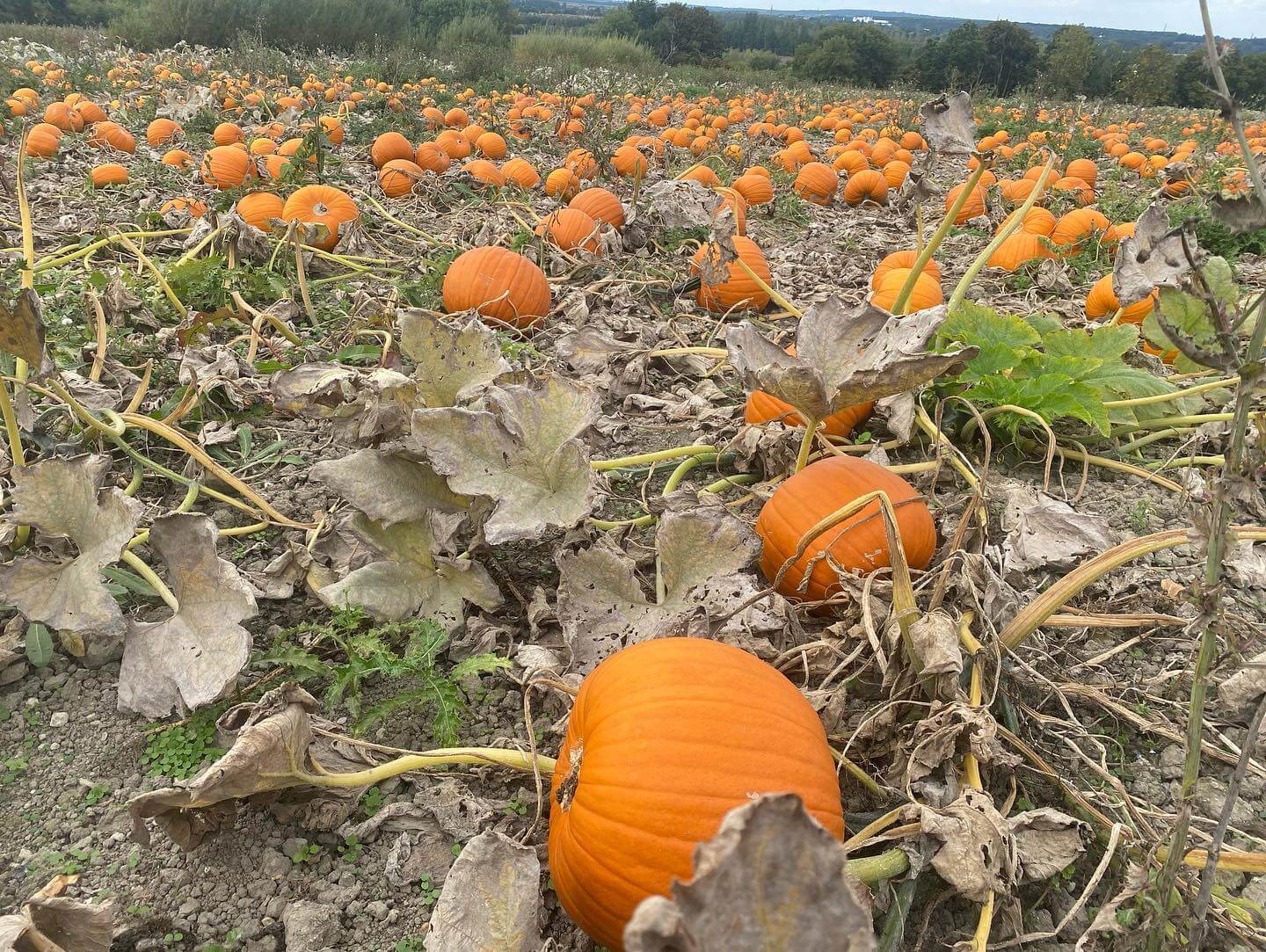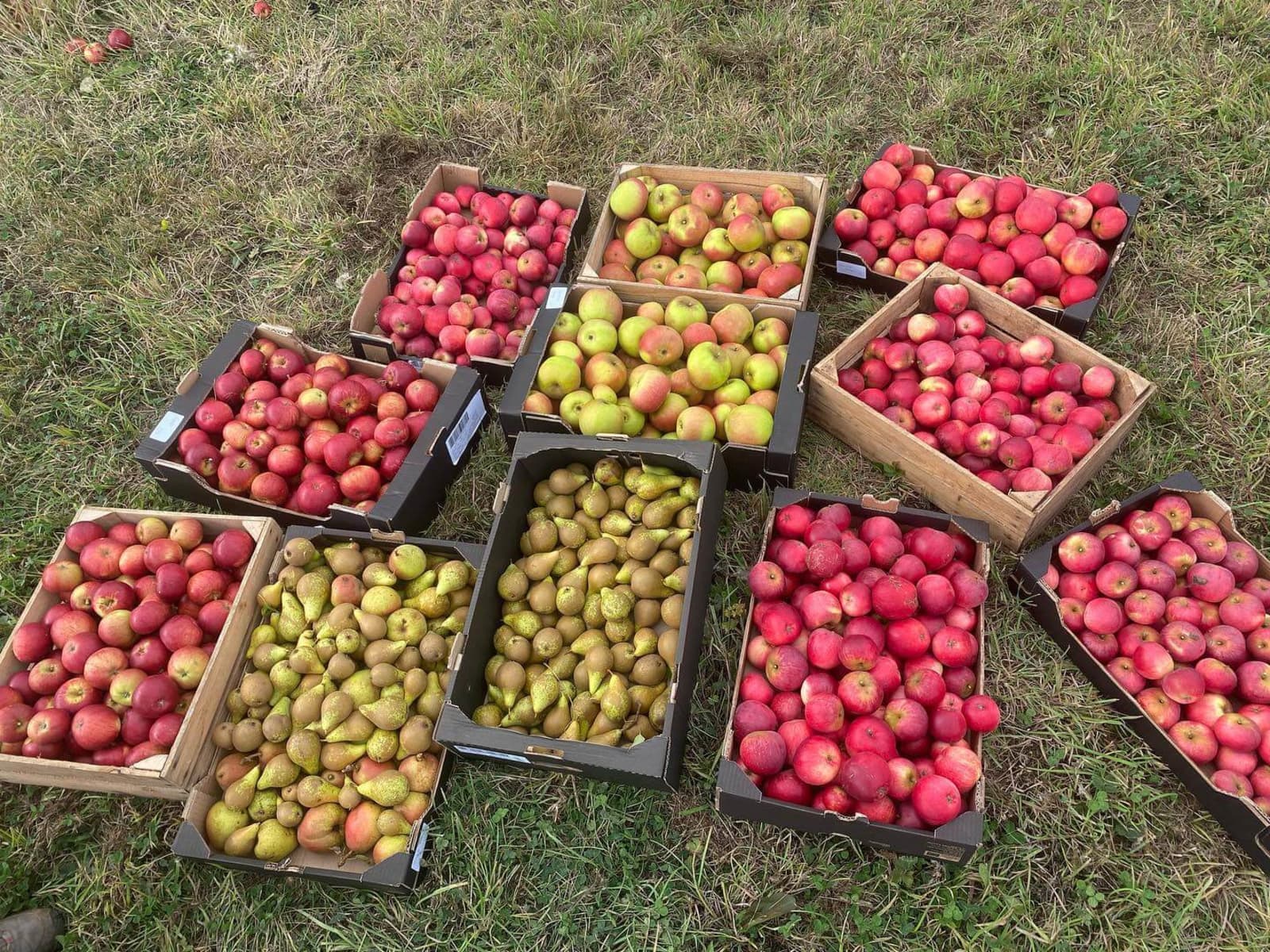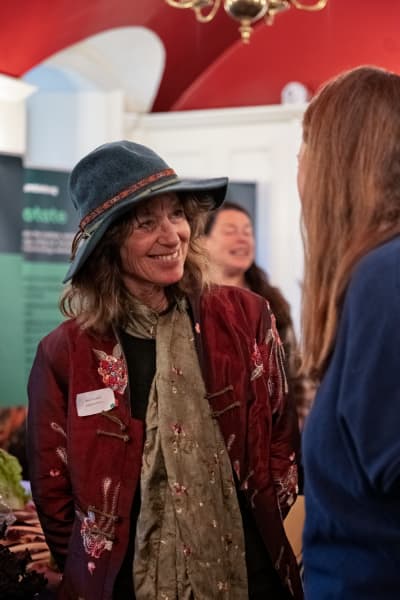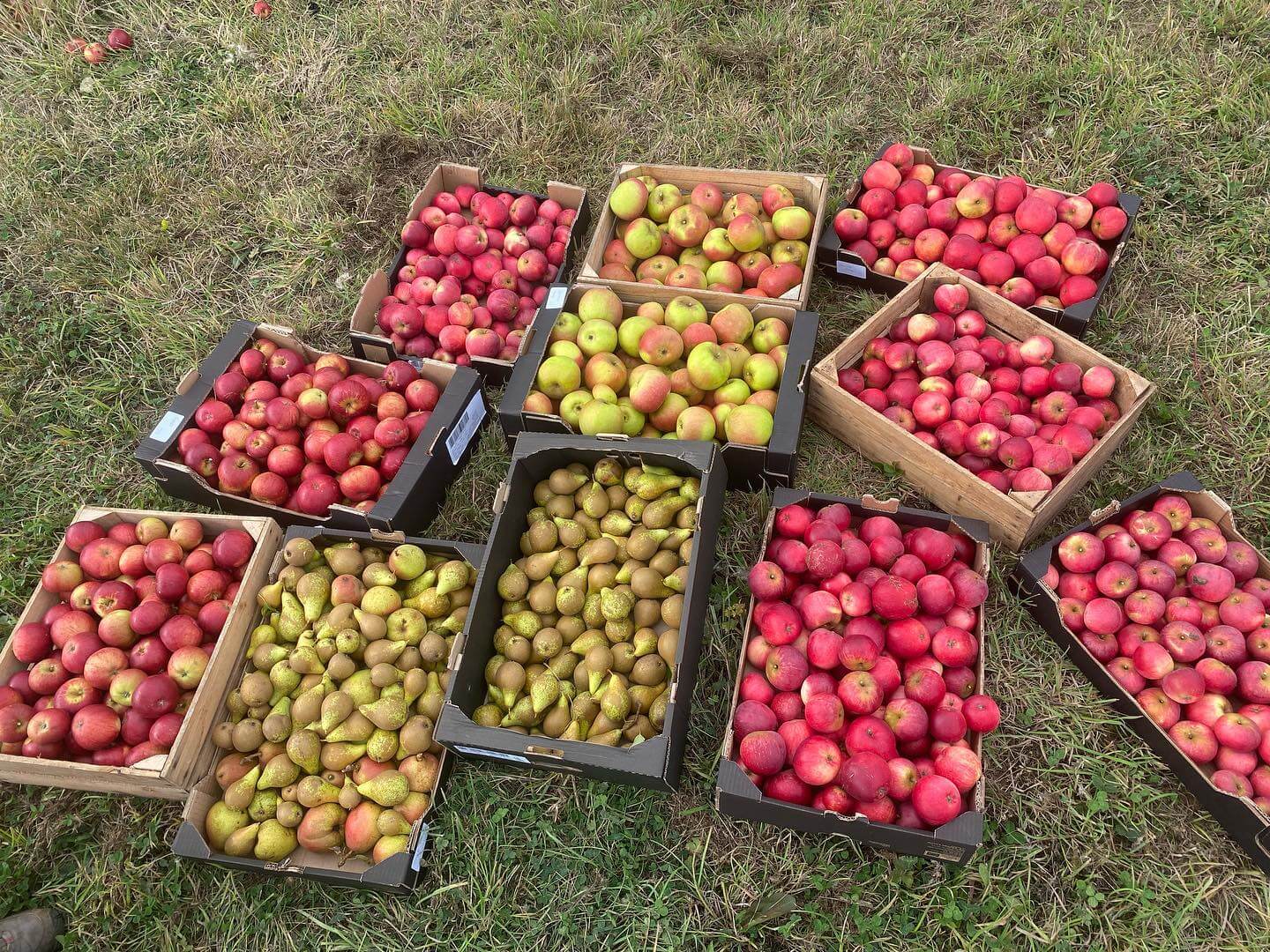
Earth Trust, an environmental charity located in the South East and Oxfordshire, owns and manages the largest freely accessible natural green space in the county. This 500-hectare space features woodland, farmland, wildflower meadows and wetlands and is home to the iconic Wittenham Clumps. Through various projects, Earth Trust champions accessible natural green spaces for all, and has been doing so for the past 40 years. The charity uses the amazing spaces it cares for, to engage and inspire people, and also to demonstrate nature-based solutions that can be used elsewhere. The Trust has several small orchards, with fruit trees ranging from apples, pears and plums, all yielding abundant fruit. This year Earth Trust worked with several community groups and organisations, including Good Food Oxfordshire and Cherwell Collective, to offer gleaning opportunities to ensure that not only did this fruit not go to waste, but was instead picked and distributed for use in food parcels and at community larders, and used in community events around Oxfordshire.
GFO spoke to Earth Trust to find out a little more about how the gleaning process has worked for them. We asked them to share their experience so that other landowners and land managers might consider gleaning opportunities in future, to try and encourage more opportunities to reduce food waste, and to distribute this surplus food more widely.
GFO: Could you explain a little about how Earth Trust manages surplus fruit and veg grown on your land, and how the gleaning process has worked?
Earth Trust: The vast majority of the food we have historically produced across the Earth Trust farm is commercial arable, which has a direct route to market; this is a combination of cereals, grains and legumes (peas and beans). We also work with our tenant farmers, several of whom also produce food products (graziers producing beef and lamb, a goat dairy producing cheese, apiarists producing honey).
The area where we hadn’t focussed before was around the wealth of trees that are planted across the farm that produce fruit, and nuts of varying quality. In order to make the most of these, we need to spend extra time and attention caring for these wonderful crop-producing trees and have started to do this, and plan the ‘field to fork’ aspect this year. We have several small orchards across the farm, producing apples, pears, plums, walnuts and (to a lesser extent) cherries.
This year is the first time we have worked with others to minimise the waste from surplus fruit production by partnering directly with various outlets to make sure the fruit was going to good homes. In addition, this year we trialled our first public event involving horticulture, with a pumpkin patch and maize maze event over the autumn half term. The leftover maize was designed and planned to be returned to the soil through a combination of animal feed, forage for wildlife and mulching back into the fields. The pumpkins and squashes have mainly been sold to the visiting public, but all surplus has ended up going through to groups and individuals who can make good use of the food we weren’t able to sell. Some of the groups we worked with to collect surplus include No Vice Ice, Cherwell Collective, Oxford City Larder and Oxford Food Hub. We have also been able to supply various other supportive catering outlets, restaurants and pubs to ensure we minimise waste, including working directly with Five Little Pigs in Wallingford, to guarantee a supply that meets their seasonal menu planning.
GFO: What are the benefits to Earth Trust to offering this surplus fruit and veg to community groups to glean?
Earth Trust: The benefits for us are numerous. In an ideal world, also because we are a charity and have to make financial ‘sense’, we would like to sell the majority of what we produce. However, food growing is not an exact science, and there are so many variables around growing food, that it becomes tricky to know what numbers to plan for, what the weather is going to do to your crop, or how many people will buy. So part of the critical picture for us to produce food with confidence includes having outlets for any surplus, and those outlets being as straight forward and uncomplicated as they can be. If we can find ways that shift our surplus but make our very busy farming lives that bit easier, then everyone’s a winner. In addition, we genuinely believe in and want to contribute to making sure the food we produce contributes to a fairer food system, and that means not wasting food by making nutritious surplus available through the best routes available, to ensure we are contributing to healthy diets for communities and people where it is most needed. This working partnership has become a vital part of developing Earth Trust’s understanding of our role and abilities as land owners and food producers, to support – in some small way – a more equitable food society.
GFO: What practicalities do landowners/ land managers need to have in place to ensure that gleaning is successful?
Earth Trust: Most important are the access points for gleaners. Fortunately, most of our produce was relatively easy to access, and a few wheelbarrows certainly made lives easier to transport produce around. Also, depending on the final destination of the produce, it is important to have any evidence or paper trail of the methods you’ve used to produce the crop; if the produce you are working with is foraged rather than commercially produced, you need to be able to provide some evidence of the management practices, treatments and absence of other interventions that might risk making the produce non-viable for safe human consumption. Also maps! If some of your gleaning locations are a bit remote, making sure your visiting gleaners know exactly where to go in advance if a big help.
GFO: Is there anything else that can help encourage landowners and community groups to connect to ensure more produce is not wasted?
Earth Trust: I think a lot of this is about setting a precedent; where one starts, others should follow. There are likely to be other landowner/manager networks that can help to spread the word, and make it both an easier and more normalised, part of the seasonal calendar. Having some guarantee that surplus food will be collected means as a producer that you’re less likely to lose it to composting or waste; whereas if you were let down, or didn’t have that guarantee, you tend to assume it will go to waste, as this has historically been an intrinsic part of the food production system.
Thank you Earth Trust! We at GFO are hugely grateful to the Earth Trust, for offering these opportunities and for taking time to speak to us regarding their experiences.
If you’re a landowner, farmer, community garden or allotment owner and are interested in offering gleaning opportunities to ensure your produce does not go to waste, please get in touch on mail@gfo.org.uk and we can help connect you with willing volunteers.
Good Food Oxfordshire are one of the partners of the WISH project, led by Cherwell Collective, designed to guide our community to a lowered carbon footprint through outreach and demonstration around reducing waste. Find out more about the WISH project here.
